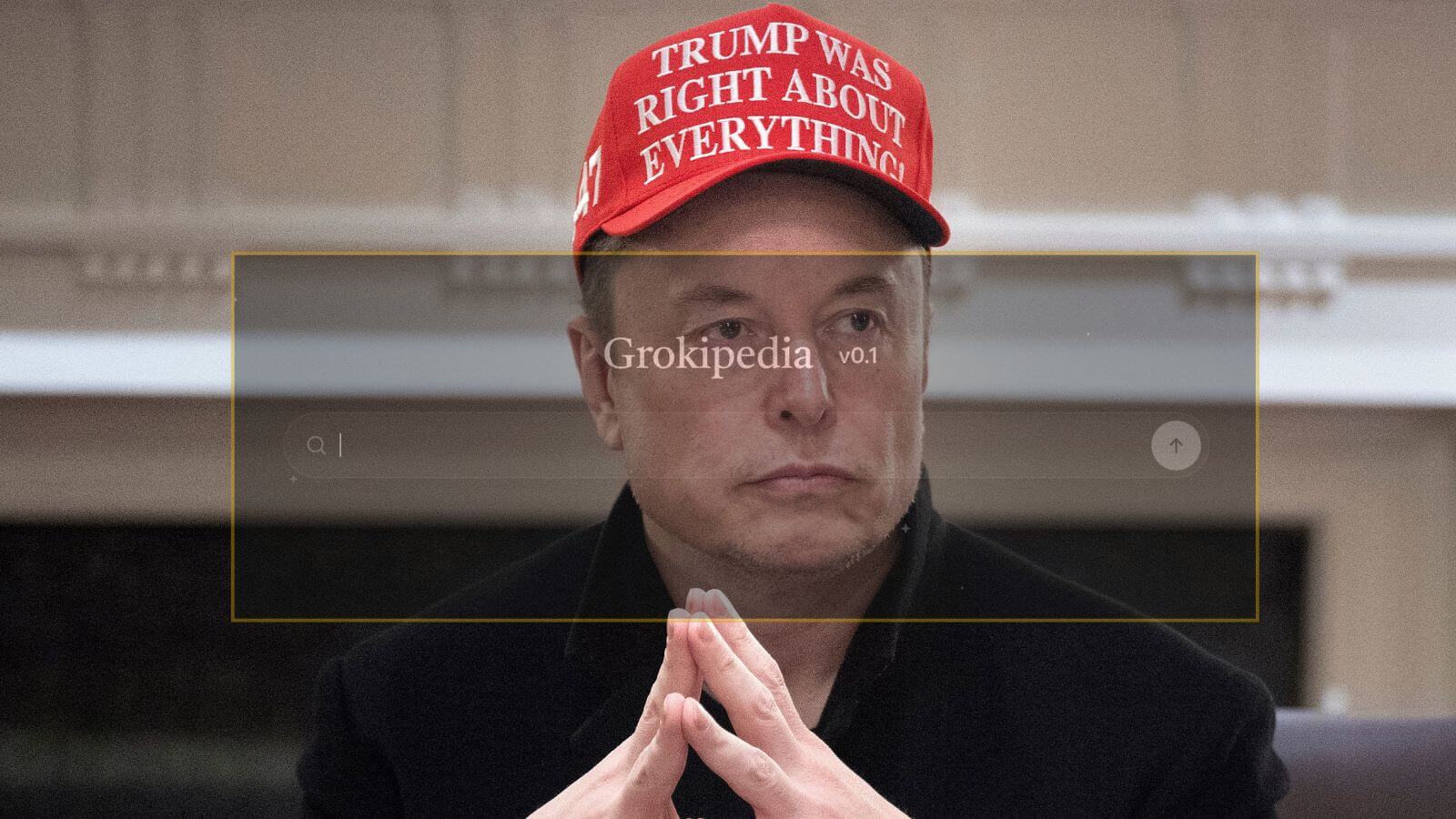Musk created Grokipedia to counter bias, but it’s full of antisemitic and racist dog-whistles
A competitor to Wikipedia, Grokipedia has a habit of endorsing Musk’s own preferred beliefs

Elon Musk, who just launched Grokipedia as a competitor to Wikipedia, wearing a hat that screams “I’m a neutral source.” Courtesy of Getty Images/Screenshot via Grokipedia
Grokipedia, Elon Musk’s new online encyclopedia built by artificial intelligence, looks a lot like Wikipedia. It has similar formatting. Many of its entries are divided into the same subsections, and much of the information is the same. But when you read the entries, particularly on topics Musk has been particularly critical of, Grokipedia tells a different story.
When Grokipedia launched on Monday, its entry on Adolf Hitler did not mention the Holocaust or Jews in the opening paragraph, simply calling Hitler an “Austrian-born German politician” who seized control of the German government “through legal means and subsequent purges.” The introduction to Hitler’s entry on Wikipedia, on the other hand, identifies him as one of the main perpetrators of the Holocaust, which it defines as the “genocide of six million Jews and millions of other victims.”
Grokipedia’s Hitler entry was updated by the end of the week to mention the Holocaust in the top paragraph as one of the main outcomes of Hitler’s regime. But the information it prioritized in the original opening was not false — all of it was factual. Nevertheless, it missed the point; Hitler is not notable for being a German politician, he is notable for starting World War II and the Holocaust.
Facts are facts. But the context — the introduction, the order in which the facts are delivered, the words used to convey them — matters nearly as much as the information itself.
Musk has accused Wikipedia of bias, calling it “Wokepedia.” (Wikipedia does not consider some right-wing media outlets to be reliable sources, or allow them to be cited in its articles.) Grokipedia is, instead, built by an AI model that relies on information from viral social media posts as well as information from purportedly neutral sources such as newspapers or academic research. Even Grok, the AI chatbot built into X, said Wikipedia was more reliable than its namesake encyclopedia.
The original Hitler entry did go on to mention the Holocaust, but only after noting that, “under Hitler’s leadership, Nazi Germany achieved rapid economic recovery from the Great Depression,” ensuring that whatever good the Nazi leader did was emphasized before his evils.
None of this is surprising; Musk adjusted Grok to answer in lockstep with his personal beliefs. The New York Times found that, after a user tweeted at Musk complaining that Grok had identified the “biggest threat to Western civilization” as being “misinformation and disinformation,” the CEO tweaked the bot. The next day, Grok said that low fertility rates were the biggest threat; pronatalism is an obsession of Musk’s.
Grokipedia has similar tendencies. Its article on pronatalism has a lengthy “argument in favor” subsection, while the “counterarguments and criticisms” section does not arrive until nearly 4,000 words later, and the section has a habit of undermining the arguments it is outlining by providing evidence to the contrary even as it is explaining criticisms.
Similarly, an entry on apartheid — Musk is South African — describes it as an era of robust economic growth for South Africa, only later noting that the rising economic tide included “stark disparities” between Black and white citizens. The page for Zionism, which Musk supports, blames Arab leaders for causing the majority of the violence in the Israeli-Palestinian conflict; the citation for this statement leads to an article that is in fact critiquing that idea.
Wikipedia’s entries sometimes include similarly controversial statements, but these usually have multiple footnotes referencing academic sources of different backgrounds — say Palestinian historians, Israeli historians and American Jewish historians — to prove that controversial lines in their entries are neutral and factual; these footnotes often include the relevant quote.
Encyclopedia entries are tricky; they’re expected to be comprehensive, detailing criticism and endorsements, which can be hard to do neutrally. It all comes down to framing. On Wikipedia, neutrality is protected by thousands of editors who debate every word, leading to a final version that must be widely acceptable. Grokipedia has no such mediating force; only Musk and his team can decide where neutrality lies.
For now, Grokipedia’s bias is mitigated by the very thing that causes it: the lack of human editors. Many of its articles are thousands of words longer than Wikipedia’s. Who’s going to read all that?

















